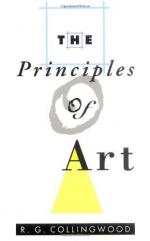|
This section contains 3,112 words (approx. 11 pages at 300 words per page) |

|
SOURCE: "Progressive Traditionalism as the Spirit of Collingwood's Philosophy," in History and Theory, Vol. XXIX, No. 4, 1990, pp. 51-6.
In the following essay, Kissell characterizes Collingwood's thought as "progressive traditionalism" in the sense that it addresses both the changing phenomena of history and perennial issues of philosophy.
Thirty-two years ago when I began my dissertation on Collingwood's philosophy, the people around me said: "Who was he? Where did you dig him up and why, since nobody knows him?" As a young graduate student, I was philosophically very naive and educated in the spirit of dogmatically distorted Marxism, but I saw at once that in Collingwood's books there was an extraordinary clarity of thought, brilliant mastery of the English language, and carefully elaborated argumentation appealing to a human capacity for self-reflection rather than deduction from dogmatically asserted premises. These qualities I recognized before I could penetrate the philosophical meaning of...
|
This section contains 3,112 words (approx. 11 pages at 300 words per page) |

|


